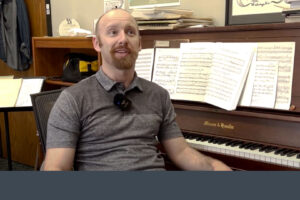One article after another slams liberal arts degrees and humanities education as lacking value. But members of the Texas State Board of Education engaged in heated battle recently over textbook approvals for one essential subject in the humanities: history.
History is a mainstay of public school curricula in this country. Yet politicians, university regents and op-ed columnists continue to argue that the humanities don’t matter.
If humanities education is a waste of resources, then why all the fuss about history books? Simply put: The humanities matter more than some are willing to admit.
Those who control history curricula control what young people learn about how America came to be. Those who control these curricula influence how students form national and regional identities, how they understand their roles as citizens, and who they deem as valuable contributors to society.
It is clear that Texans have polarizing opinions about how history should be taught in schools. Open discussion is necessary if we are to have a chance of ensuring the most accurate and useful textbooks are chosen.
In some sense, then, debates such as those recently among State Board of Education members might undermine the broader push to devalue humanities education. In fact, they point out just how much we all value history, revealing how powerful humanities education can be.
The recent vote to approve questionable teaching materials, however, perpetuates an ongoing attempt to dismantle the scaffold of critical thought upon which quality education is built. Demands that publishers alter some “negative” aspects of U.S. history resulted in many revisions toward the goal that students learn “to be proud American citizens.”
Instead, as one scholar put it, “students are usually surprised to find they have been provided a white-washed version of history. They are often outraged. They feel lied to.”
It does society a disservice to skew facts and blur the harsh realities of the past.
This practice can cripple students’ ability to analyze related events happening in the present. It would be difficult, for instance, to fully comprehend the Ferguson shooting, the resulting protests and the grand jury’s decision not to indict without some understanding of this country’s long history of systemic, institutionalized racism.
We cannot move forward if we don’t know how we got here.
We must start acknowledging that the humanities are valuable to public education and valuable to our daily lives, across the boundaries of party politics.
Rather than being concerned with so-called positive or negative portrayals of America, members of the State Board of Education should be devoted to developing curricula that are accurate and unbiased. And parents and educators must be aware of the gravity of the board’s decisions because they affect youths throughout Texas and across the nation.
We delude ourselves to think that education in the humanities including in history, literature and culture could ever be a waste of resources. We inhibit learning when we limit students’ opportunities to think critically about who they are and where they come from. And we willfully waste human potential by denying the value of the humanities.
We need to change this way of thinking before more damage is done.
Morgan Blue is the program coordinator for the Texas Humanities Project at The University of Texas at Austin.
A version of this op-ed appeared in the Fort Worth Star Telegram, McAllen Monitor, and the Austin American Statesman.
Related op-ed on Texas Perspectives:
How to Attract More Girls to STEM Careers
Can’t Go To Your Child’s Parent-Teacher Conference? Try This Instead
School Homework Needs to be More Motivating
To view more op-eds from Texas Perspectives, click here.
Like us on Facebook.
Share this story on Twitter:
New @LiberalArtsUT op-ed on TP: "We must start acknowledging that the humanities are valuable to our daily lives." http://t.co/yWpGDeyDvZ
— Texas Perspectives (@TexPerspectives) December 16, 2014



